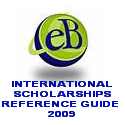Two 4-year PhD (AIO) positions are available to study the physical and chemical evolution of low-mass star-forming regions using data on water and related molecules to be obtained in the context of two approved Herschel key programs, WISH and DIGIT. Complementary ground-based submillimeter programs using JCMT, APEX and submillimeter interferometers are planned as well. The analysis will involve state-of-the- art radiative transfer techniques and chemical-dynamical models.
One PhD position will be located at Leiden Observatory, The Netherlands, working mostly with Herschel-HIFI data, whereas the second position will be at the Max-Planck Institut fur Extraterrestrische Physik (MPE), Germany, working mostly with Herschel-PACS data. Both PhDs will be awarded at Leiden University.
Applications should include a curriculum vitae (with a list of grades for exams), a brief statement of research experience, and the names of at least two people who can serve as a reference. Selection of candidates will start on MARCH 1 2008 and will continue until the positions are filled. The positions are open to students of all nationalities with the equivalent of a "doctoraal" (Masters) degree in astronomy, physics or chemistry. The starting date for the positions can be anytime in 2008. Please send applications to:
Prof. dr. E.F. van Dishoeck
Leiden Observatory
P.O. Box 9513
2300 RA Leiden
The Netherlands
FAX: +31-71-5275819
e-mail submission: jobs@strw.leidenuni v.nl
e-mail inquiries: ewine@strw.leidenun iv.nl
See
http://www.strw. leidenuniv. nl
http://www.strw. leidenuniv. nl/~ewine<http://www.strw. leidenuniv. nl/%7Eewine/>
http://www.strw. leidenuniv. nl/WISH
http://www.mpe. mpg.de/ir
http://peggysue. as.utexas. edu/DIGIT
for further information about Leiden Observatory, MPE and the Herschel key programs. The research is carried out in the framework of the Netherlands Research School for Astronomy (NOVA) and the International Max-Planck Research School on Astrophysics (IMPRS).






Post a Comment